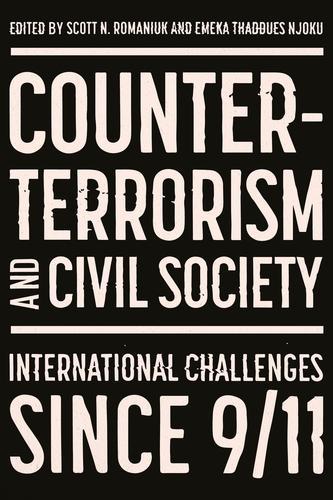
Counter-Terrorism and Civil Society: Post-9/11 Progress and Challenges
(Hardback)
Publishing Details
Counter-Terrorism and Civil Society: Post-9/11 Progress and Challenges
By (Author) Scott N. Romaniuk
Edited by Emeka Thaddues Njoku
Manchester University Press
Manchester University Press
7th September 2021
United Kingdom
Classifications
Tertiary Education
Non Fiction
Comparative politics
Armed conflict
Military intelligence
363.32517
Physical Properties
Hardback
344
Width 156mm, Height 234mm, Spine 21mm
658g
Description
Earlier calls for deeper focus on the intersection of the formulation and implementation of global counter-terrorism measures and civil society have gone largely unanswered. Seminal articles, chapters, and books laying the basis for such research remain relatively few in numbers and much of what is known can be extracted from grey literature and technical reports lacking theoretical rooting, methodological foundations, and little empirical evidence obtained through fieldwork and engagement with the actors implementing counter-terrorism measures, and the voices of those being targeted by those measures. This book, therefore, aims to better understand the relationship between the enforcement of global security measures linked to terrorism and civil society in a variety of countries around the world. It provides an entirely new foundation in a lagging research agenda concerning the relationship between post-9/11 counter-terrorism policies and measures and civil society.
Reviews
'This edited volume is the work to engage anyone seeking a critical understanding of how counter-terrorism practices are transforming state-society relations.'
Joshua Akintayo, Critical Studies on Terrorism
Author Bio
Scott N. Romaniuk is a Visiting Fellow at the University of South Wales
Emeka Thaddues Njoku is a Newton International Fellow in the International Development Department at the University of Birmingham
